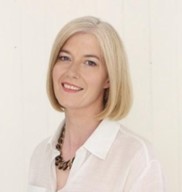Banofi Leather of Yale University triumphed over five other global university start-ups, marking the end of the year-long student challenge.
The for-profit social enterprise was thought up by former McKinsey employee and Master in Sustainability graduate, Jinali Mody, following her failed quest to find a sustainable leather bag.
Aiming to target the multi-billion leather industry by supplying an alternative substitute made from banana plant waste, Banofi says its production process “completely eliminates” the toxic waste created by animal leather, and leads to a comparative 90% reduction in carbon emissions, too.
Redesigning fashion around the SDGs
In its 14th year, the theme for this year’s Hult Prize was ‘Redesigning Fashion’. University teams were challenged to find sustainable social ventures for the clothing and fashion industry, which is responsible for 8% of the world’s greenhouse gas emissions.
Entrants had to create businesses that would have a “measureable positive impact on people and the planet and support the United Nations in meeting its SDGs by the 2030 deadline”.
More than 40,000 participating student entrepreneur teams from 120 countries submitted ideas for sustainable solutions across the entire fashion value chain.
Following on-campus university rounds, teams were selected to compete alongside other global teams in cities across the world for a coveted spot at a four-week, digital accelerator program this summer to receive intensive mentorship. Finally whittled down from 23 teams to six, the Hult Prize then moved to Paris, where the grand finale was held outside New York City for the first time.
"Shark Tank" pitches for investment
A panel of prestigious judges, including fashion company founders, heard on-stage “Shark Tank”/“Dragons Den”-style pitches from the finalists. They drilled the teams in front of the packed Le Trianon theatre, as well as behind the scenes, using scorecards to make their final decision.
While the Yale team won the prize, which will be distributed as the company reaches demonstrable milestones, the five other finalists also received a $100,000 prize investment in their companies too.
Lori van Dam, CEO of the Hult Foundation Prize, said that what made the finalists special was their optimism.
She added: “What stood out about these teams was the energy, their qualifications, and how well they worked together.
“Having a great team really helps you as you strategize and move your business forward. All of the finalists’ ideas are really innovative and many of them are already selling, bringing in revenue, so that obviously gives us a good indication that they can continue to thrive as businesses – not just as social ideas. That combination is what helps them rise to the top.”
Meet the 2023 Hult Prize finalists
(winner) Banofi Leather
Yale University, New Haven, Connecticut (USA)
A B2B social enterprise focused on supplying fashion houses with vegan leather produced from banana crop waste.
EFFCT
Alexandria University, Alexandra (Egypt)
A sustainable furniture company that repurposes discarded clothing materials to create lightweight, durable furniture. Its textile-driven product is used by architects, interior designers, and schools and education centers.
Graff Inc
Hult International Business School, Cambridge, Massachusetts (USA)
Aiming to replace plastic usage by turning textile waste into sustainable hangers, with solutions for fashion houses, retail stores, home furniture, luggage, accessories, and wall and floor insulation.
Innovious
Cranfield University, Cranfield, UK
Developing packaging solutions made from biodegradable and compostable materials, meeting the demands of the industry as well as the environment.
Labwear Studios
ETH Zurich – Swiss Federal Institute of Technology, Zurich, Switzerland
A sustainable manufacturing company that produces garments using Lean Manufacturing and circular design principles, with a target audience of up-and-coming fashion designers who prioritize sustainability and social responsibility.
RiiVERSE
National Taiwan University, Taipei, Taiwan
Focused on preserving the value of every piece of fabric used in the fashion industry by transforming discarded and excess garments and textiles into usable materials. Pioneering a shift towards a regenerative fashion industry.
Next year’s Hult Prize theme
The Paris final also saw the unveiling of theme for the 2024 Hult Prize. Called ‘Unlimited’, the theme was explained via video by long-term collaborator on the prize, former US President, Bill Clinton:
“We have just six more years to achieve United Nations Sustainable Development Goals. That means we have a lot of work to do in a short amount of time. And it's going to take everyone's best efforts. So this year for the first time ever, we're putting you in the driver's seat.
“For 2024, the whole product challenge [for the Hult Prize] will be ‘Unlimited’. That means you can pitch any idea you have for social enterprise as long as it is world-changing and aligned with at least one of the SDGs. If you need any advice then look no further than the topics we’ve tackle over the past 14 years.”







